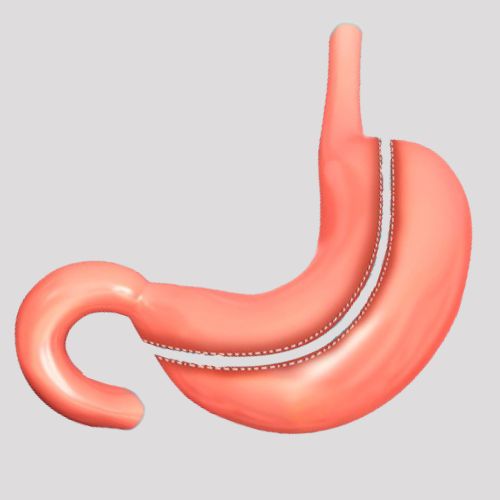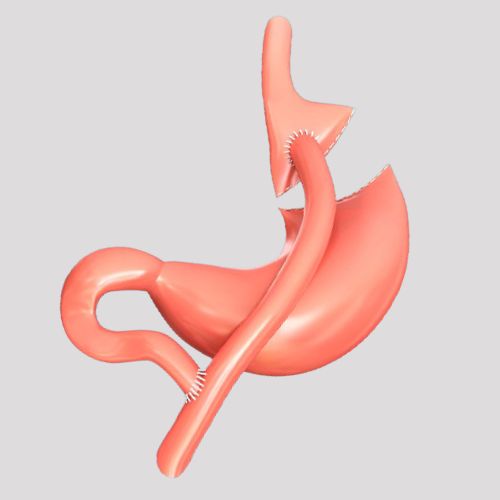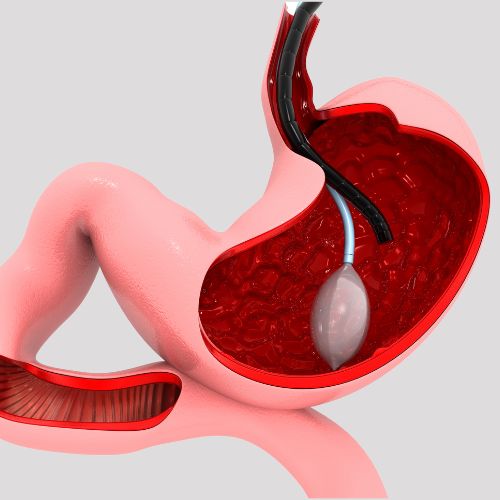Weight Loss Surgery
If you are contemplating weight loss surgery in Turkey, it is important to conduct thorough research on the clinic you are considering. Take the time to verify the cleanliness of the facility and the validity of the doctor's license. Additionally, check if the clinic has accreditation from the Joint Commission International (JCI), which signifies adherence to high-quality standards. To further aid your decision-making process, it can be beneficial to schedule a free consultation with the clinic. This allows you to gather more information and make an informed choice.
Operation Summary
Weight loss surgery, known as bariatric or metabolic surgery, is an option for individuals who are severely obese and may be struggling with related health conditions. This surgical procedure can result in substantial weight loss and potentially alleviate obesity-related issues, such as type 2 diabetes or high blood pressure.
However, it’s essential to recognize that weight loss surgery is a significant operation that should typically be considered after attempting to lose weight through healthy diet and exercise regimens. It is not a decision to be taken lightly and should be thoroughly discussed with healthcare professionals to assess its suitability based on individual circumstances.
Why Should You Prefer Weight Loss Surgery ?
When it comes to weight loss surgery, Turkey has emerged as a leading destination for individuals seeking effective and affordable solutions. Here’s why you should consider a bariatric surgery in Turkey
Through weight loss surgery, you can reduce the risk of suffering these health conditions and prevent other related issues like hypertension, stroke, and myocardial infarction.
By reducing your weight through weight loss surgery, you are able to alleviate this disease, allowing you to remain free of insulin and other medication for over three years after the surgery.
Weight loss surgery has been proven to be effective in eliminating hypertension. A study in this regard showed that the surgery was able to eliminate the disease in 61.7 percent of patients.

Why is Weight Loss Surgery so Affordable in Turkey?
Bariatric surgery in Turkey offers a notably more cost-effective option compared to other countries. This is attributed to various factors, including the high quality of medical care, the accessibility of top-notch medical devices, and the expertise of the surgical teams.
The crucial aspect to consider is the choice of surgeon and the quality of hospitals. Although the cost of bariatric surgery in Turkey may not be as high as in the US or UK, it still varies significantly across different countries.
Being a developing country, Turkey may not adhere to the same rigorous standards as other European nations. For instance, the Turkish Lira has a lower value, which allows the possibility of finding surgeons who charge considerably less. Additionally, Turkish hospitals may not maintain the same level of staffing standards as their counterparts in the UK, and surgeons may not be held to identical standards. Consequently, there is a risk of receiving substandard care.
- Writted by
- "Web and Editorial Board"
- Publication Date:
- Updated Date:April 18, 2024
types of weight loss surgery
There are three types of weight loss surgery that are approved and proven effective all over the world:

Gastric Sleeve
The Sleeve Gastrectomy is a surgical procedure that involves removing approximately 80 percent of the stomach, leaving behind a tubular pouch resembling the shape of a banana. This surgery reduces the capacity of the stomach to hold food, resulting in a feeling of fullness sooner after eating. Additionally, the surgery has a significant impact on gut hormones, which play a role in hunger, satiety, and blood sugar control.

Gastric Bypass
Gastric bypass surgery, also known as Roux-en-Y gastric bypass, is a procedure performed in three stages. Firstly, the surgeon uses staples to create a small pouch in the upper section of your stomach. This reduces the size of your stomach, resulting in a feeling of fullness with less food intake. In the next step, the surgeon divides your small intestine into two sections and connects the lower part directly to the small stomach pouch.

Gastric Balloon
The gastric balloon, typically made of silicone or polyurethane material, is used as a non-surgical method for obesity treatment. It is inserted into the stomach in a deflated state and then filled with sterile liquid to expand its size. The process does not involve surgical intervention, although certain types of gastric balloons may be placed and removed using endoscopy under anesthesia.
Why Choose Us Weight Loss Surgery?
Three reasons to come on this journey with us
PERMANENT RESULT
Our bariatric surgery procedures offer long-lasting and permanent results, allowing you to enjoy your fit appearance for years to come.
PAINLESS PROCESS
With our advanced techniques and skilled surgeons, we prioritise your comfort throughout your weight loss process, ensuring a virtually pain-free experience.
PATIENT SATISFACTION
We prioritize patient satisfaction and strive to exceed your expectations. Our dedicated team ensures that you receive personalized care and support throughout your weight loss journey.
Before the Surgery
Prior to undergoing surgery, you will have a detailed discussion with your surgeon to explore the available surgical options and address any concerns or queries you may have. Depending on your medical history, we may perform a series of preoperative tests to ensure that your specific needs are met throughout the entire surgical process, including before, during, and after the procedure.
Our experienced dietitian will provide valuable guidance on developing healthy eating habits to support your weight loss journey. You may also be required to commence a supervised diet program as part of the preparatory phase.

During the Surgery
The duration of your surgery will vary depending on the specific procedure that you and your surgeon have chosen, typically ranging from one to three hours. Our dedicated team will provide support and guidance throughout the initial days of your recovery, actively encouraging you to engage in early mobility by getting up and walking as soon as it is deemed appropriate.

After the Surgery
Following your surgery, it is important to prioritize rest and allow yourself time to recover. Gradually incorporating gentle activities like walking and moving around the house can aid in a faster recovery. It is crucial to follow the guidance provided by your healthcare professional regarding the appropriate level of physical activity that is safe for you.
Your healthcare professional will provide specific instructions regarding your diet, informing you about the foods and beverages you can consume and those you should avoid. Additionally, they may prescribe dietary supplements to ensure you are receiving sufficient vitamins and minerals during your recovery period. It is important to adhere to these recommendations to support your overall health and well-being.

BARIATRIC SURGERY PROCESS
The operation may vary from person to person but usually
| PROCEDURE DURATION | 6-8 hours |
| ANESTHESIA | Local Anesthesia |
| RECOVERY TIME | 1-2 weeks |
| ACCOMODATION | 2-3 Days |

We Are Here To Consult You
Ask a question to us. Our medical consultant will reach you as soon as possible for more information.
FAQ
Some of the questions our patients often ask us
The Vertical Sleeve Gastrectomy is widely recognized as the most commonly performed and safest procedure in the field of bariatric surgery.
The sleeve gastrectomy is currently the most prevalent form of bariatric surgery. It involves a significant reduction in the size of the stomach. During the procedure, a surgeon removes a portion of the stomach, resulting in a reduction of its size by approximately 80%.
There are several types of bariatric surgery that are commonly performed:
Roux-en-Y (roo-en-wy) gastric bypass: This is the most commonly used method of gastric bypass surgery. It involves creating a small stomach pouch and rerouting the digestive tract to bypass a portion of the small intestine.
Sleeve gastrectomy: In this procedure, about 80% of the stomach is surgically removed, leaving behind a long, tube-like pouch. This reduces the stomach’s capacity and restricts the amount of food that can be consumed.
Biliopancreatic diversion with duodenal switch: This surgery involves removing a portion of the stomach and rerouting the small intestine to limit food absorption. It is a more complex procedure that is typically recommended for patients with severe obesity.
The success rate of bariatric surgery is measured by the percentage of excess weight lost and maintained in the long term. Generally, weight loss surgery is considered successful if individuals are able to lose and sustain 50% or more of their excess weight. By this criteria, the success rate of bariatric surgery is approximately 90%.
Multiple studies indicate that after a period of 10 years, individuals who have undergone weight loss surgery are typically able to maintain approximately 55% of their initial excess body weight loss.
The gastric sleeve procedure is a permanent solution that remains effective throughout your lifetime and cannot be reversed.
Complications of gastric sleeve surgery can include excessive bleeding, infection, adverse reactions to anesthesia, blood clots, breathing difficulties, and leaks at the incision site on the stomach. It is also important to consider the potential long-term risks associated with gastric sleeve surgery.
In the group that underwent surgery, the adjusted median life expectancy was found to be 3.0 years longer (with a 95% confidence interval ranging from 1.8 to 4.2) compared to the control group. However, it was observed that the surgery group had a life expectancy 5.5 years shorter than that of the general population. The postoperative mortality rate within 90 days was recorded at 0.2%, and 2.9% of patients in the surgery group required repeat surgery.


